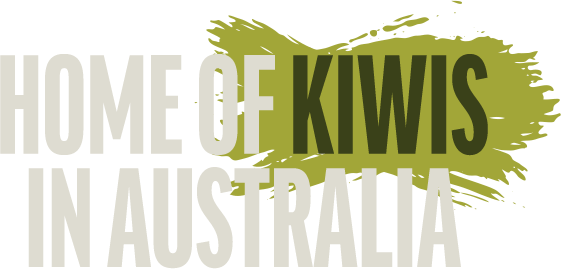
Healthcare in Australia Costs
In Australia when you visit a doctor you will in most cases be asked to pay a fee. It is important to mention that doctors can set their own consultation fees. Some doctors may charge $50, others $100. You should enquire with doctor’s surgeries in your area for accurate costs.
If you are privately insured your provider will reimburse you an amount dependent on your level of cover. If you see a doctor as a public patient, using the Medicare system, you will receive a rebate which is currently around $36. In both cases you would submit your payment receipt from your doctor to either your private insurer or Medicare and they would reimburse you at a later date (or on the spot if you attend a Medicare office). Some clinics will have a facility where you can be refunded on the spot.
Another service available in Australia is called Bulk Billing.
What is Private Health Insurance?
There are two types of private health insurance – hospital policies cover you when you go to hospital, while general treatment policies (sometimes known as ancillary or extras) cover you for ancillary treatment (eg dental, physiotherapy). Most health funds offer combined policies that provide a packaged cover for both hospital and general treatment services, or you can buy separate hospital and general treatment policies to ‘mix and match’.
If you’re purchasing cover for the first time or upgrading your plan, you need to serve a waiting period before you can claim your benefits. During the waiting period, you don’t receive any benefits for certain treatments or you receive lower benefits for a period of time. Most Insurers will waiver waiting periods when you sign up around tax time or if you are looking to transfer to a new fund.
You should also take note of what is and isn’t covered on your policy – not all policies are comprehensive. Depending on your level of cover, you may not be fully covered against all costs associated with your treatment and have to pay some out-of-pocket expenses, this is called a “gap payment”.
In Australia you can choose whether to have Medicare cover only, or a combination of Medicare and private health insurance.
Benefits of Private Health Insurance
By taking out private health cover, you are protecting you and your family from having to pay out of pocket for medical treatments. The various benefits you can enjoy by obtaining private health insurance include:
- The ability to choose the hospital where you’re treated.
- The ability to choose between being treated in a public hospital or a private hospital.
- The ability to choose the doctor who will treat you.
- Shorter wait times at hospitals and doctors.
- Cover for a range of different fees including doctors’ fees, theatre costs and accommodation costs.
- A range of additional services such as chiropractic, dental care, optical care, remedial massage, appliances such as hearing aids, acupuncture and more.
- If you take out private health insurance you can enjoy a 30% rebate.
- If you’re an older Australian you can enjoy a higher rebate. Australians aged 65-69 receive a 35% rebate and Australians aged 70 and over enjoy a 40% rebate.
Ambulance cover, this saves you any out of pocket expenses if you need a ambulance.
Healthcare in Australia – Information and Services in Australia
- The emergency phone number for Ambulance, Fire or Police in Australia is 000.
- Health Direct Australia provides a range of free health services including telephone hotlines for free medical advice and a search function for nearby health services including emergency departments, pharmacies, psychologists and general dental. You can find them online or free call 1800 022 222 24 hours a day, 7 days a week.
- For information on hospitals in Australia you can visit an Australian Government website called MyHospitals.
- If you are new to Australia, the Australian Government Department of Immigration and Citizenship provides a short overview of the Australian health system and the financial assistance that is available.
- Information on services and assistance provided by the Australian Government is available at the Department of Health website.
- The Department of Human Services website provides in depth information on a range of services including those provided by Centrelink, Medicare and the Australian Taxation Office.
- Further information on State and Territory services is available at the following websites:
- NSW Health website
- Queensland Health website
- SA Health and Wellbeing website
- Department of Health VIC
- Government of Western Australia Department of Health
Healthcare in Australia – Filling Prescriptions
Many medicines in Australia can be prescribed only by a doctor via an official prescription. To obtain medicines prescribed by a doctor, simply take your prescription to any chemist. Your prescription may be filled immediately if it’s available off the shelf, or you may be asked to wait or come back later.
PBS medicines are available to all Australian and New Zealand residents. Proof of residence or nationality may be required. If you’re eligible but unable to provide proof or you have not yet received your Medicare card you may be charged the full price for medicines, although you can obtain a refund at a Medicare customer service centre or by posting your claim.
What is Bulk Billing?
Bulk billing is when a provider bills Medicare directly for any medical or allied health service that the patient receives and accepts the Medicare benefit as full payment for their service. There are no out of pocket expenses for the patient in a bulk billing arrangement.
How does it Work?
The best way to explain how bulk billing works is to give a practical example of a simple doctor’s surgery transaction.
A transaction using the Bulk Billing payment system:
- A doctor charges a consultation fee which is an amount determined by Medicare.
- The patient presents their Medicare card to the receptionist.
- Medicare deposits the set amount directly into the doctor’s account.
- The doctor is not allowed to charge any additional fees to the patient.
- The patient has seen the doctor at no cost whatsoever.
A transaction using the public Medicare payment system:
- A doctor sets their consultation fee, say $75.
- The patient pays the receptionist $75 and is issued a receipt.
- The patient goes to their nearest Medicare office (or completes an online claim) and Medicare reimburses the patient a set amount, currently around $36.
- Some doctor’s surgeries have the ability to swipe the Medicare card or enter the card details on the spot and only charge the patient the out-of-pocket cost – the consultation cost less the Medicare rebate.
What is Medicare?
Medicare is Australia’s universal health scheme. It is a Commonwealth government program that guarantees all citizens (and some overseas visitors including New Zealand citizens living in Australia) access to a wide range of health services at little or no cost. People who are eligible for Medicare get free public hospital treatment and free or subsidised treatment from doctors, as well as access to subsidised pharmaceuticals.
Benefits of Medicare
The objectives of Medicare are to make health care affordable for eligible citizens, to give eligible citizens access to health care services with priority according to clinical needs and to provide a high quality of care.
Medicare provides access to free treatment as a public (Medicare) patient in a public hospital and free or subsidised treatment by practitioners such as doctors, including specialists, and participating optometrists. Because Medicare was originally set up to replace private insurance schemes for hospital and medical services, it does not cover many other important services, such as dental, some allied health, and ambulance services.
Health services not covered under Medicare are funded through a range of other Commonwealth and state government programs, by private health insurers, or individuals themselves.
The Department of Human Services administers the Medicare program, including enrolments and benefit payments. Contribution to the health care system is made through taxes and the Medicare levy, which is based on taxable income.
Who is eligible for Medicare?
All Australian and New Zealand citizens are eligible for Medicare.
Enrolling in Medicare
Applications can be made in person at a Medicare Office. Those unable to visit a Medicare office can call 13 20 11 to request a form.
When enrolling, applicants will need to show documentary proof that they are eligible, (eg a birth certificate or passport). Applicants can call 13 20 11 or visit a Medicare office to confirm what they will need to provide.
When your application has been processed you will be issued with a Medicare Card (allow up to 10 business days for postage). You will also be given a temporary card on the spot which can be used immediately. Medicare cards are issued to individuals or to families, with a maximum of five names per card. Families with more than five members will have additional names listed on additional cards, while retaining the same card number. Children are listed on their parent’s card – a family may be all on one card, or a child may be listed on one parent’s card, or both parents’ cards, or even in some cases, alone on their own card if their name exceeds a specific number of letters.
When to use your Medicare card
You use your Medicare card when:
- making a Medicare claim for a paid or unpaid doctor’s account
- visiting a doctor who bulk bills
- receiving treatment as a public patient in a public hospital
- filling a Pharmaceutical Benefits Scheme (PBS) prescription at a pharmacy.
The Pharmaceutical Benefits Scheme (PBS) is free medicines for pensioners and a list of 1,700 ‘life-saving and disease preventing’ medicines free of charge for others in the community. Under the PBS, the government subsidises the cost of medicine for most medical conditions. Most of the listed medicines are dispensed by pharmacists, and used by patients at home.
To help meet the cost of the scheme, you pay a proportion (a ‘co-payment’) for your PBS medicines and the Government pays the rest of the cost. Co-payment amounts are adjusted in line with indexation on 1 January each year.
Health Entitlements for New Zealanders
Medicare
New Zealand citizens living permanently in Australia are eligible for Medicare provided they can prove they have entered Australia long-term or permanently and can supply 100 points of proof of their identity. In order to prove that they live in Australia long-term or permanently, New Zealanders need to produce documents such as a purchase or lease agreement for a property, gas/electricity accounts in the same name or an employment contract you will also need to sign a statutory declaration and have it witnessed by a Justice of the Peace (most pharmacists can do this).
Hospital Treatment
New Zealand citizens and permanent residents of New Zealand who hold a Returning Residents Visa are entitled to receive free emergency treatment at an Australian public hospital under the Reciprocal Health Care Agreement between New Zealand and Australia. Under the Agreement their pharmaceutical needs may also be subsidised, but there may be charges for some services, such as ambulance transport.
For further information contact Medicare Australia on 13 20 11.
Non Hospital-Related Medical Expenses
New Zealanders who are not eligible for Medicare or assistance under the Reciprocal Health Care Agreement have to pay all out-of-hospital costs; for example doctor’s visits, ambulances, dental care, medical evacuation to New Zealand, treatment in private hospitals, treatment that is elective or not immediately necessary and funerals, as well as the full cost of all pharmaceuticals. The New Zealand High Commission in Canberra recommends that New Zealanders obtain medical insurance before travelling to Australia, to cover these costs.
Moving to Australia
- Banking Options
- Childcare & Early Learning
- Community Services
- Credit Checks
- Driver Licence
- Financial Support
- Getting Connected
- Giving Birth
- Healthcare in Australia
- Insurance
- Legal System
- Marriage Relationships
- Pension Eligibility
- Police Check
- Renting Advice
- Responsible Service of Alcohol
- School Years
- Tax in Australia
- What to Bring
- Working With Children Check





